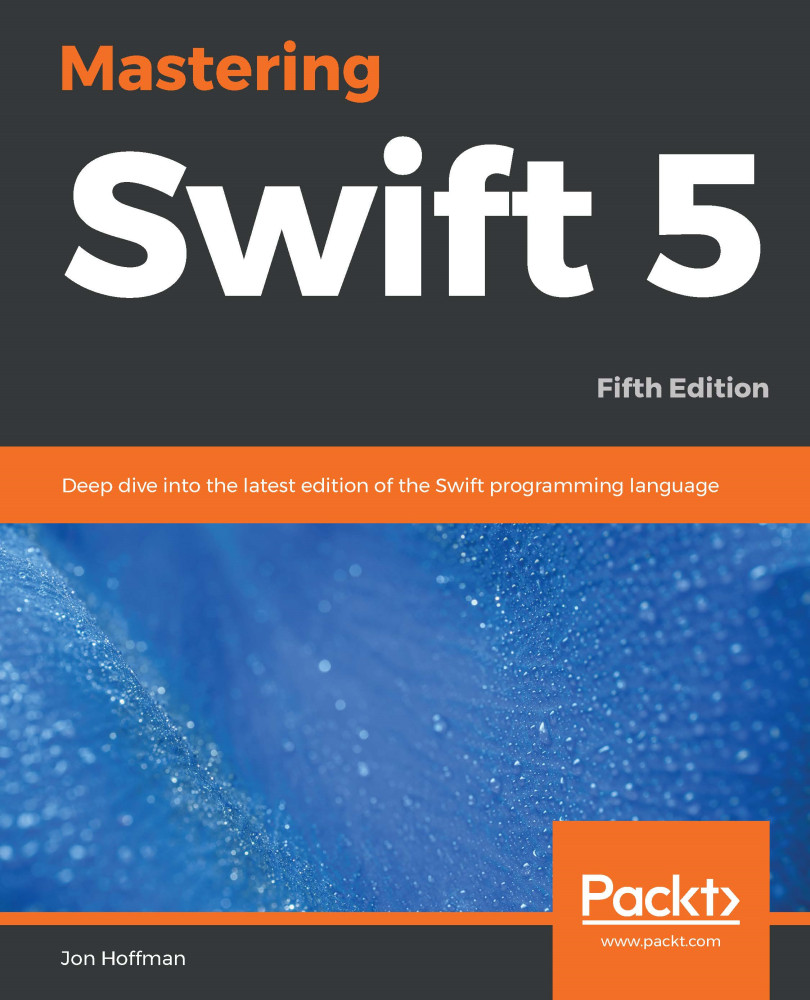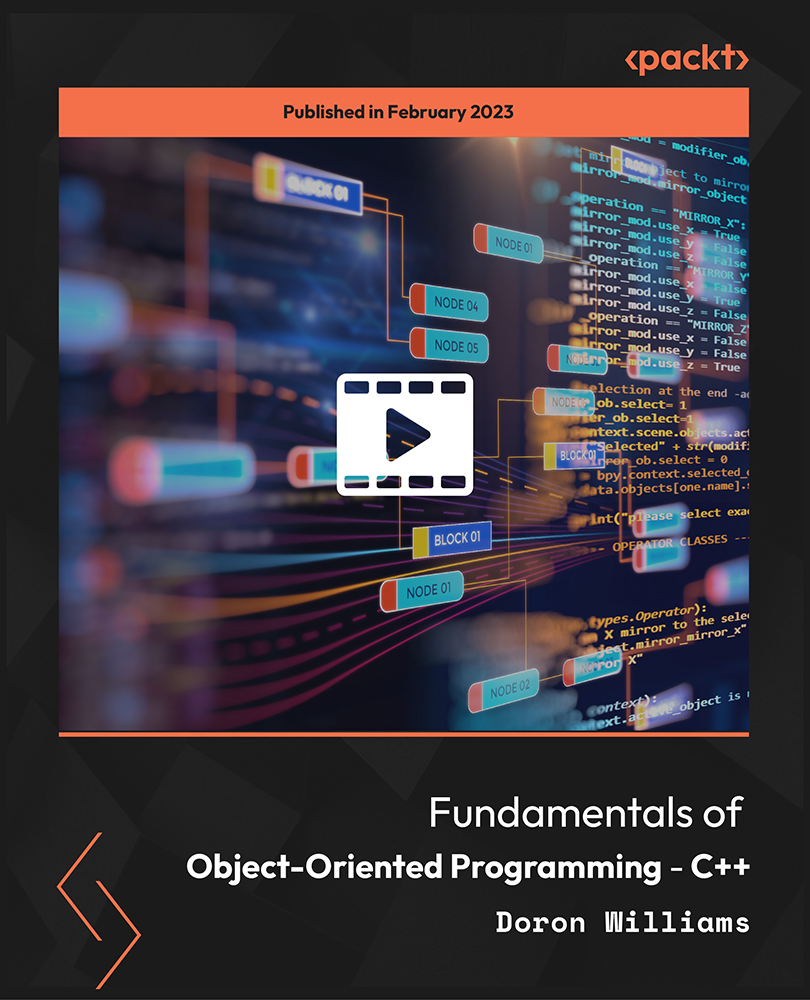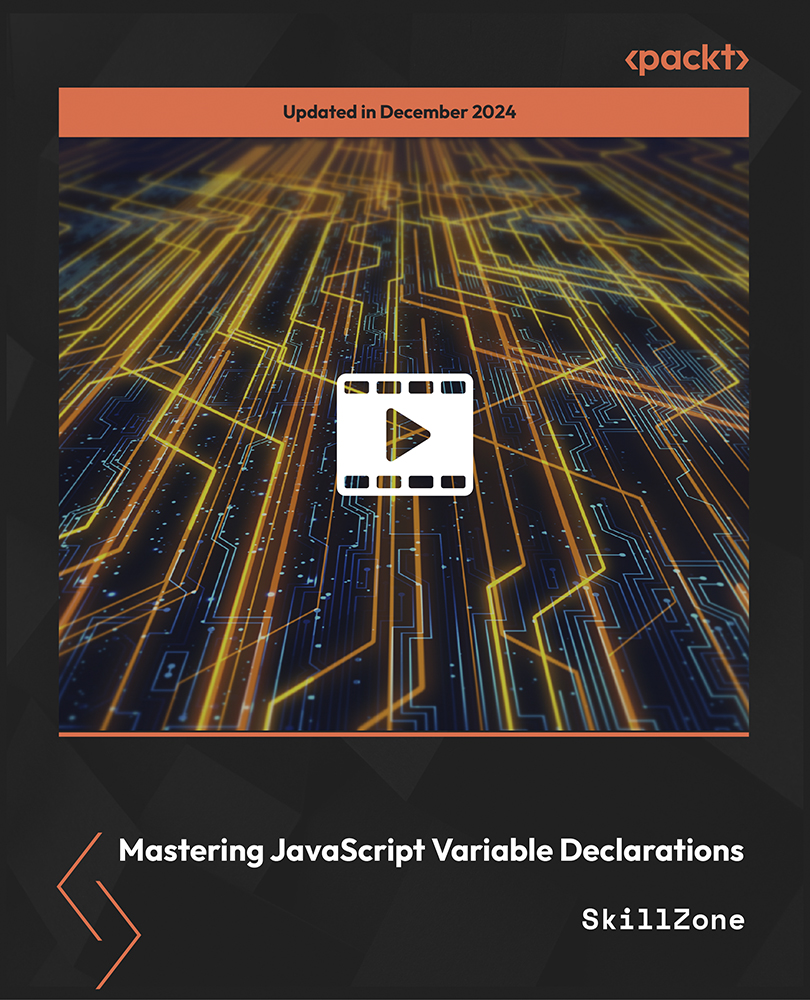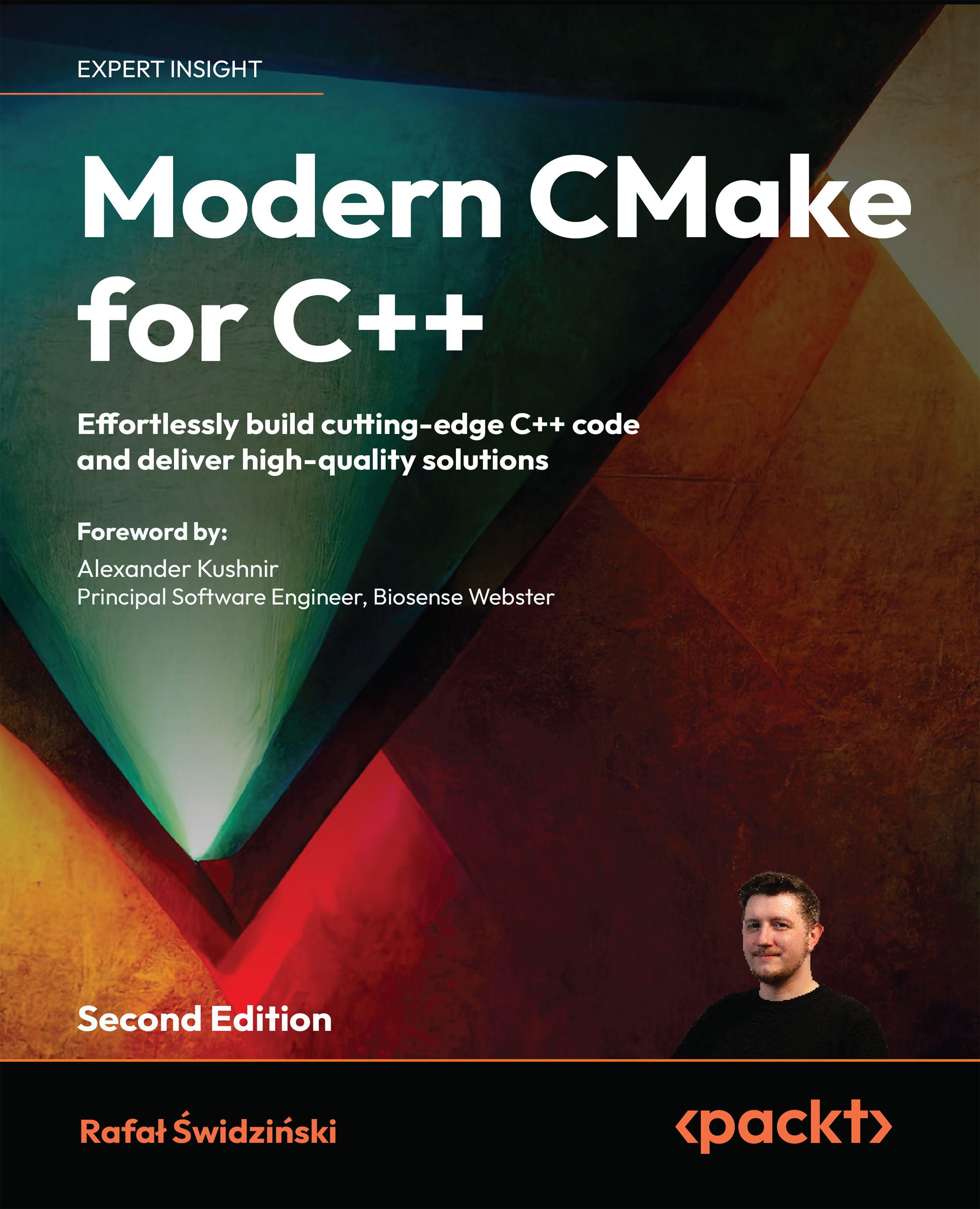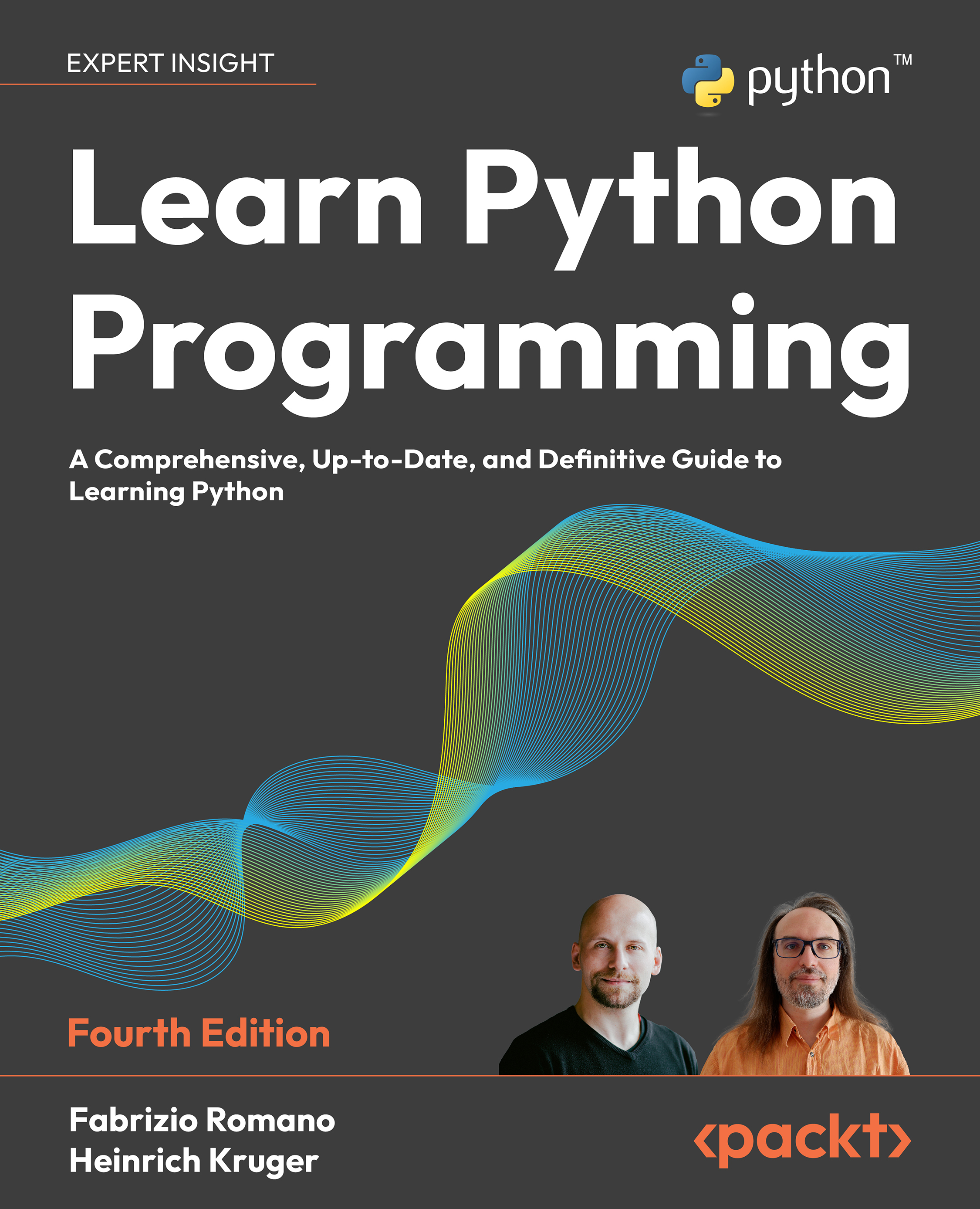Now, let's try to port our Point class into a struct. Consider the following:
struct Point {
var x: Double
var y: Double
}
We have defined a simple struct; as you should notice, there's no need to add a constructor, as the compiler will synthesize it for us:
let point = Point(x: 0.0, y: 0.0)
translate(point: point, dx: 1.0, dy: 1.0)
If we keep the original implementation, our program won't compile. Point is a value type now, and it's forbidden to mutate a value inside of a function! We need to add the inout keyword to indicate that this function will mutate the contents of the value that is passed. When the function returns, the value will be assigned back to the original variable.
With those changes complete, we also need to change our call to indicate that our point variable can be modified by our translate function with the & (ampersand) character. We also need to mark our point as var; otherwise, the inout function cannot modify its contents:
func translate(point: inout Point, dx : Double, dy : Double) {
point.x += dx
point.y += dy
}
var point = Point(x: 0.0, y: 0.0)
translate(&point, dx: 1.0, dy: 1.0)
point.x == 1.0 // true
point.y == 1.0 // true
We've successfully ported this function, but we can do better.
With structs, you will often see that this pattern is cumbersome. We may want the translate function to return a mutated copy of the value we passed in, as follows:
func translate(point: Point, dx : Double, dy : Double) -> Point {
var point = point
translate(point: &point, dx : dx, dy : dy)
return point
}
We'll be able to use the previously defined function with the following code:
let point = Point(x: 0.0, y: 0.0)
let translatedPoint = translate(point, dx: 1.0, dy: 1.0)
point.x == 0.0
point.y == 0.0
translatedPoint.x == 1.0
translatedPoint.y == 1.0
With this new implementation, we're not mutating the value anymore, but the translate function is always returning a new Point value. This has many benefits, including the ability to chain such calls together. Let's add a method to our Point struct:
extension Point {
func translating(dx: Double, dy: Double) -> Point {
return translate(point: self, dx: dx, dy: dy)
}
}
You don't need to declare this new method in your struct, but you can declare it anywhere in your program.
Using our newly crafted extension, we can easily create new Point values and translate them:
let point = Point(x: 0.0, y: 0.0)
.translating(dx : 5.0, dy : 2.0)
.translating(dx : 2.0, dy : 3.0)
point.x == 7.0
point.y == 5.0
 United States
United States
 Great Britain
Great Britain
 India
India
 Germany
Germany
 France
France
 Canada
Canada
 Russia
Russia
 Spain
Spain
 Brazil
Brazil
 Australia
Australia
 Singapore
Singapore
 Canary Islands
Canary Islands
 Hungary
Hungary
 Ukraine
Ukraine
 Luxembourg
Luxembourg
 Estonia
Estonia
 Lithuania
Lithuania
 South Korea
South Korea
 Turkey
Turkey
 Switzerland
Switzerland
 Colombia
Colombia
 Taiwan
Taiwan
 Chile
Chile
 Norway
Norway
 Ecuador
Ecuador
 Indonesia
Indonesia
 New Zealand
New Zealand
 Cyprus
Cyprus
 Denmark
Denmark
 Finland
Finland
 Poland
Poland
 Malta
Malta
 Czechia
Czechia
 Austria
Austria
 Sweden
Sweden
 Italy
Italy
 Egypt
Egypt
 Belgium
Belgium
 Portugal
Portugal
 Slovenia
Slovenia
 Ireland
Ireland
 Romania
Romania
 Greece
Greece
 Argentina
Argentina
 Netherlands
Netherlands
 Bulgaria
Bulgaria
 Latvia
Latvia
 South Africa
South Africa
 Malaysia
Malaysia
 Japan
Japan
 Slovakia
Slovakia
 Philippines
Philippines
 Mexico
Mexico
 Thailand
Thailand

